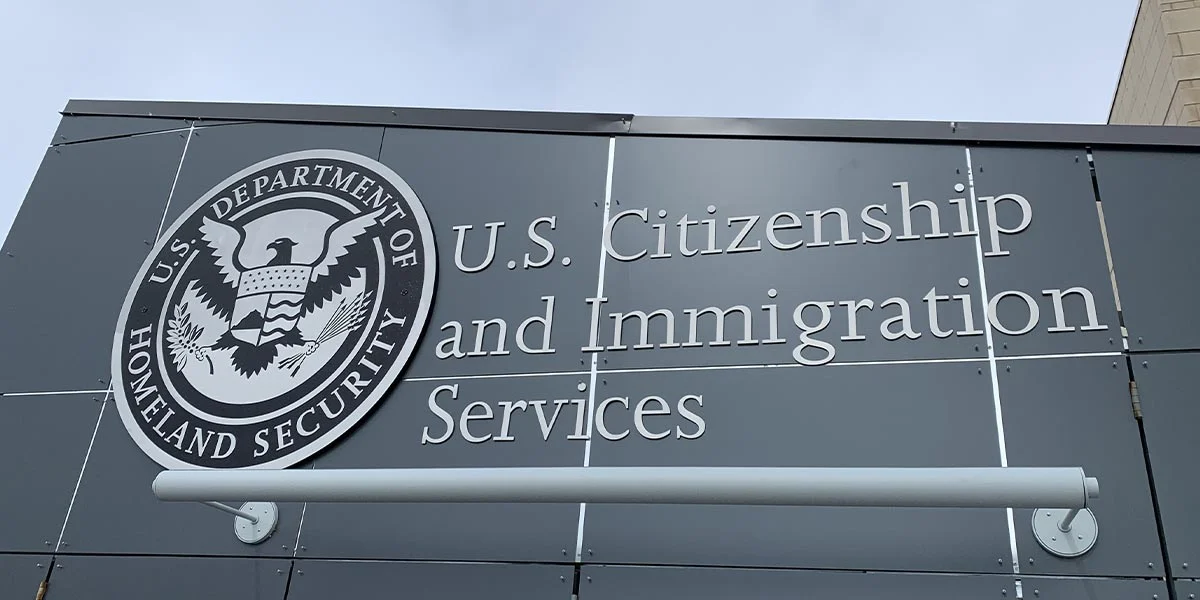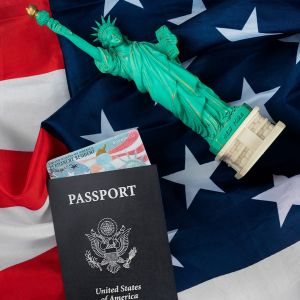USCIS gains more authority over immigrant arrests
In a move that has generated great concern in immigrant communities, USCIS now has expanded enforcement powers. This new authority of USCIS agents, confirmed by the final rule published by the government on August 14, 2025, allows USCIS through its special agents (known as classified 1811 officers) to make arrests, carry firearms, and execute search and arrest warrants, marking a significant change in U.S. immigration policy.
Until now, USCIS had focused primarily on adjudicating immigration applications, such as permanent residency, citizenship and asylum. However, with this new rulemaking, USCIS has expanded its mission and now has the ability to act as an immigration enforcement agency, working hand-in-hand with agencies such as ICE to manage national security and immigration fraud control.
How does this new USCIS authority affect immigrants?
For Latino immigrants, especially those living in the U.S. irregularly or with temporary status, this measure represents a real threat, as the possibility of USCIS agents making arrests within immigrant communities and carrying firearms significantly increases the risk of arrests, investigations and deportations.
In fact, immigrants who have not regularized their immigration status or who have committed some type of infraction related to their legal status will be much more likely to be targeted by these new practices.
On the other handAs a result, USCIS will now have the ability to work closely with ICE and other law enforcement agencies, which means that joint raids and operations could be conducted both in neighborhoods and in places where Latino immigrants live or work. As a result, the agencies will be able to share information about suspicious cases and activities, increasing the likelihood that immigrants will be investigated, detained and deported.
How will this collaboration with ICE be carried out?
One of the most alarming points of this new rule is the ability USCIS now has to coordinate with ICE in law enforcement. In other words, the rule states that USCIS will be able to support ICE in handling immigration investigations from start to finish, without the need to refer cases to other agencies.
As a resultThis means that USCIS will not only be responsible for the evaluation of immigration applications, but will also be able to intervene directly in investigations of fraud, violations of immigration laws and any other activity deemed unlawful or against national security.
Consequently, this level of cooperation puts Latino immigrants in a more vulnerable situation, as USCIS now has a greater ability to identify and act on immigration irregularities that previously may have gone undetected or not been directly prosecuted by the agency.
USCIS agents' new impact on arrests
The most significant change in USCIS' ability lies in its authority to make arrests. In other wordsAs a result, USCIS agents will now be able to arrest individuals who are violating immigration laws and prosecute them under the same standards that apply to other federal law enforcement agencies. Therefore, this means that immigrants, even those who are in the midst of legal proceedings, can be arrested if they are found to be in violation of any law related to their immigration status.
As a resultIn addition, the possibility of USCIS making arrests increases the risk that more Latino immigrants will be detained while awaiting the resolution of their paperwork or during interventions at their places of employment or residence. In this sense, the mere suspicion of being in the country illegally could lead immigrants to face detention and deportation proceedings much more quickly.
Carrying weapons: A new danger for immigrants
Another critical aspect of the new authority granted to USCIS is the permission for agents to carry weapons. This raises concerns about the safety of immigrant communities. While the goal of this measure is to improve security in investigations, it also poses additional risks for those in vulnerable immigration situations.
The presence of armed agents in Latino immigrant neighborhoods could intensify fear and distrust within the community, making it even more difficult for immigrants to seek help or access essential services.
What can you do to protect yourself from USCIS changes?
Against this backdrop, it is critical that Latino immigrants stay well informed about their rights and how to protect themselves in the event of an arrest or investigation. Some recommendations include:
Know your rights: Immigrants have rights even if they are in the country without documentation. It is essential to know what to do if a USCIS agent shows up at your home or workplace. Do not open the door without a warrant and it is important not to sign anything without an attorney present.
Seek legal advice: If you have doubts about your immigration status or if you are at risk of being detained, it is vital to consult with a specialized immigration attorney who can guide you on the best course of action.
Keep all documents in orderIf you are in the middle of an immigration process, make sure that your application is complete and that you have all the necessary documentation. This will reduce the chances that your case will be challenged or rejected.
Be informed about changes in the law: Keep abreast of new regulations and measures implemented by USCIS and other federal agencies. This will help you make informed decisions and be prepared for any situation.
A scenario of increased vigilance towards immigrants
USCIS policy changes mark a before and after for immigrants in the U.S., especially Latinos. With the expansion of USCIS's powers to make arrests, carry weapons and work closely with ICE, immigrants will face a more guarded and restrictive environment.
While these changes are designed to strengthen national security and prevent fraud, they also increase the risks of unwarranted detentions and expedited deportations.
It is more important than ever that Latino immigrants stay informed about their rights and seek the right support to navigate the immigration system safely and legally.
I AM NOT AN ATTORNEY LICENSED TO PRACTICE LAW IN THE STATE OF FLORIDA, AND I MAY NOT GIVE LEGAL ADVICE OR ACCEPT FEES FOR LEGAL ADVICE.
I AM NOT AN ATTORNEY LICENSED TO PRACTICE LAW IN THE STATE OF FLORIDA AND CANNOT GIVE LEGAL ADVICE OR ACCEPT FEES FOR LEGAL ADVICE.
Our firm is associated with attorneys licensed in the state of Florida who can provide independent legal services. The notary only performs notarial acts and does not provide legal advice.







